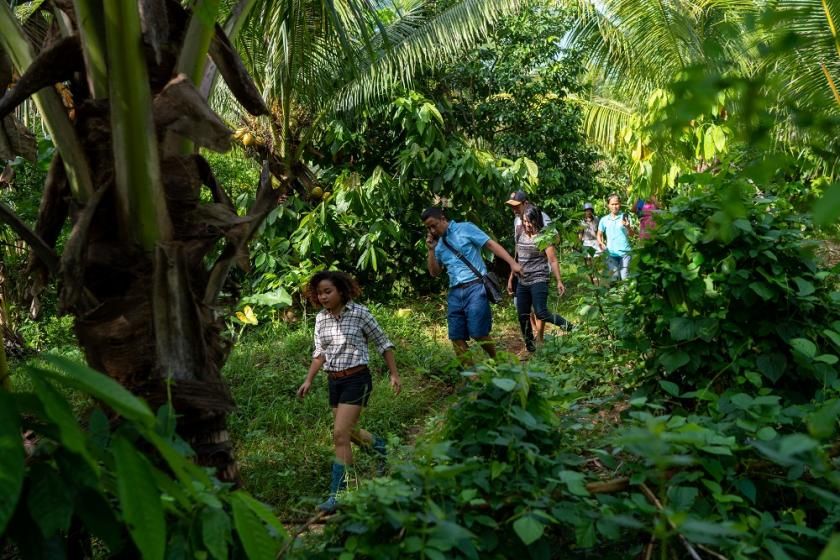Environmentalist, chef and social entrepreneur Louise Mabulo tells Gen.T why she started The Cacao Project and her passion for training farmers in sustainable farming techniques
The Philippines gets hit by around 20 typhoons a year, with flooding and high winds often devastating both cities and rural areas across the archipelago. As a result, farmers, heavily dependent on their crop yields, are growing increasingly vulnerable as tropical storms grow more severe with climate change.
Louise Mabulo, a 22-year-old environmentalist, chef and social entrepreneur who grew up in the countryside community of San Fernando, in the province of Camarines Sur, says it was typhoon Nock Ten, the strongest typhoon to hit the Philippines in 2016, that made her realise the extent of the farmers’ predicament. Nock Ten destroyed 80 percent of crops in her community, wiping out any chance of a paycheck for the farmers with it.
“They really got the short end of the stick in terms of economics, so I wanted to do something to help,” Mabulo says. She started by helping the typhoon relief effort, but quickly realised it wasn’t enough. “I thought it was very superficial to be giving away relief goods, just food and supplies, because it’s very short-term and the issues caused by climate go on for months or even years.”

“I decided I wanted to do something more—something more meaningful that would make a difference in their lives for at least a few months,” she says. Leaning on her network from her time as a chef, she started calling her friends in the food and beverage industry, asking them to donate seedlings that she could distribute to farmers to plant after the storm.
Part of the problem, Mabulo quickly realised, was that the primary crops the farmers grew, coconut and rice, both take a longer time to regenerate. “I started doing some research and using surveys and I realised that we needed to change the way we were farming and diversify our crops, so I introduced cocoa [to the farmers]. Cocoa was a more resilient option for the farmers… It also had a good market value and I knew the farmers would benefit from producing something like that.”
What started as a well-intentioned idea to distribute spare cocoa seeds to farmers has since exploded into an established social enterprise, The Cacao Project, which has trained over 200 farmers and planted over 80,000 trees. Her work has grown so far-reaching that she has since been awarded the coveted Youth Champions of the Earth award from the United Nations, and recently scored a National Geographic Explorer grant.
